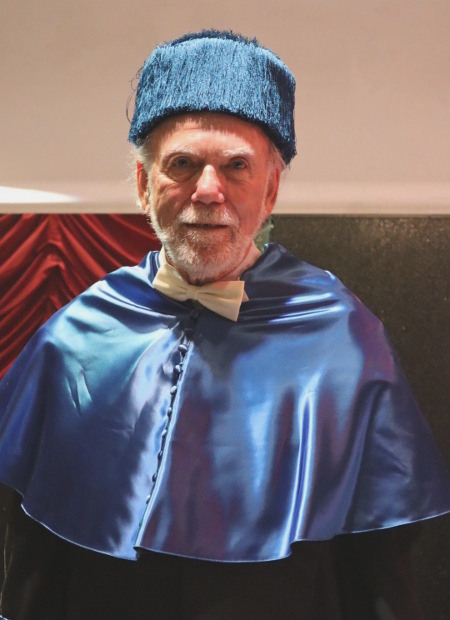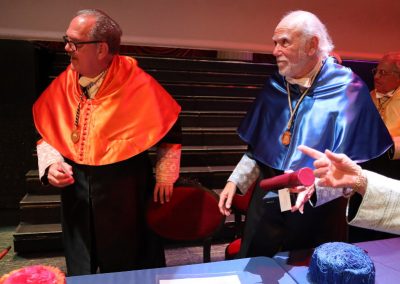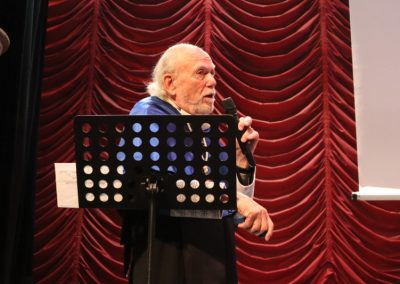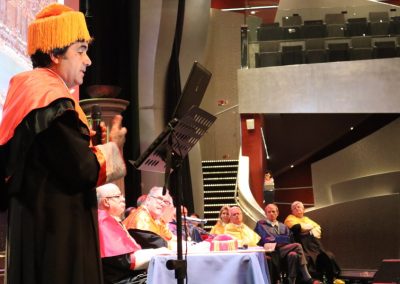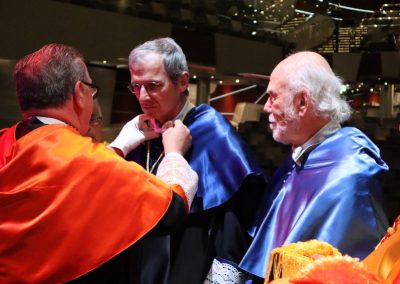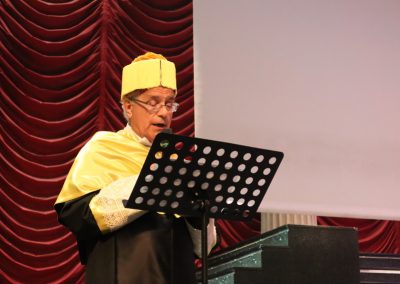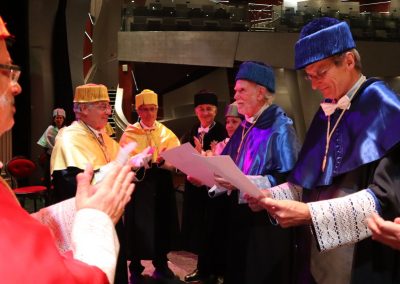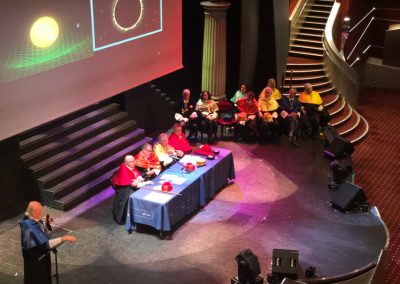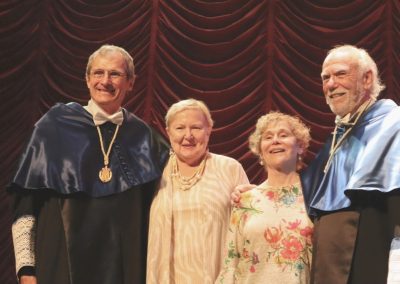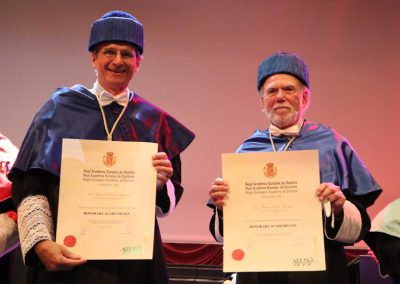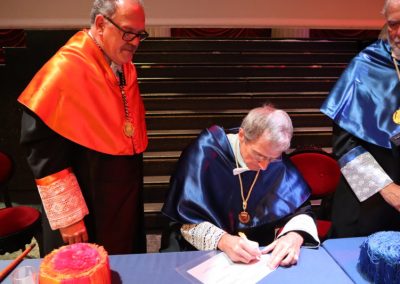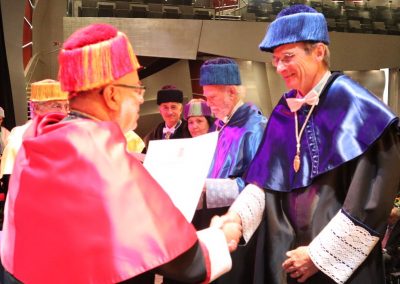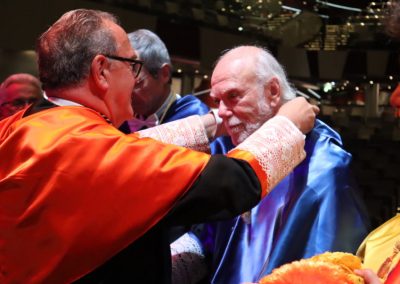Honorary Academician
Experimental Sciences: Doctor in Physics
Date of admission: July 17, 2018
Nobel Prize in Physics 2017: He received the Nobel Prize for the detection of gravitational waves that had been predicted by Albert Einstein and are a fundamental consequence of his General Theory of Relativity.
Dr. BARRY C. BARISH
- Born in Omaha, United States, 1936.
UNIVERSITY EDUCATION
- Bachelor’s Degree in Physics from the University of California, Berkeley.
- PhD in Physics from the University of California, Berkeley.
TEACHING AND PROFESSIONAL ACTIVITY
- Professor Emeritus of Physics at the California Institute of Technology (Caltech), Pasadena, USA.
- Principal Investigator of the Laser Interferometer Gravitational-Wave Observatory (LIGO) (1994–2005).
- Director of the LIGO Laboratory at Caltech (1997–2006).
- Participated in the creation of the first intense antiproton beam at Brookhaven (1960s).
- Co-designed the first spectrometer at Stanford to study high-energy electron collisions, together with Nobel Laureates Jerome Friedman, Henry Kendall and Richard Taylor.
- Developed in the 1970s an accelerator to produce a narrow-band neutrino beam.
- His research was key to establishing the theory of the unification of the electromagnetic and weak nuclear interactions (Glashow, Weinberg and Salam), the foundation of the current Standard Model of Particle Physics.
- Led the detection of gravitational waves in 2015, one of the greatest milestones in modern physics.
- Member of the National Science Board of the United States (2003–2009).
- Member of the National Academy of Sciences of the United States.
- Member of the American Association for the Advancement of Science.
- Member of the American Physical Society (APS), where he served as President in 2011.
- Honorary Doctorate from the University of Bologna, the University of Florida, the University of Glasgow, Southern Methodist University and Sofia University St. Kliment Ohridski.
AWARDS AND HONOURS
- Nobel Prize in Physics (2017), together with Kip S. Thorne and Rainer Weiss, for the detection of gravitational waves.
- Princess of Asturias Award for Technical and Scientific Research (2017).
- Henry Draper Medal of the U.S. National Academy of Sciences.
- Recognised as a “Titan of Physics.”
- American Ingenuity Award from Smithsonian Magazine.
- Enrico Fermi Award.
- Giuseppe and Vanna Cocconi Prize from the European Physical Society.
- Zhongzhi Fundamental Science Award.

